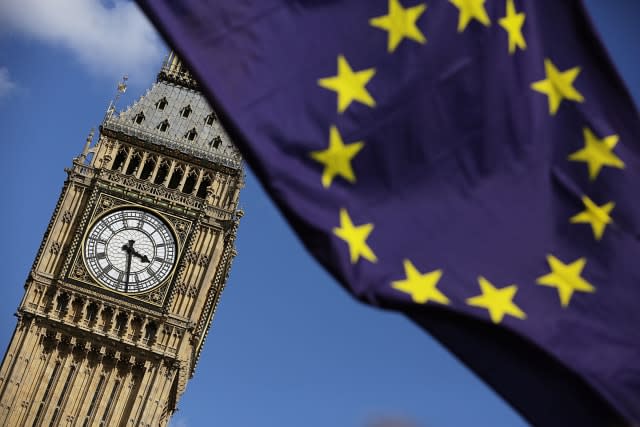Commons set for ‘Super Tuesday’ Brexit clash

In what is shaping-up to be Brexit’s “Super Tuesday” showdown in the Commons, various factions of MPs are competing to stamp their mark on the EU withdrawal agenda.
With parliamentary tradition upended by the battle for control of Brexit, what would normally have been just a bland neutral motion by the Government on the Prime Minister’s policy stance now threatens to take on a life of its own.
Both sides in the often incendiary debate are hoping for a lightning strike moment to illuminate the way out of the Brexit impasse.
As a result of a previous rebellion, MPs are able to table amendments to the motion, with the handful selected by Speaker John Bercow set to get voted on and potentially alter the course of the scheduled EU exit.
Mr Bercow is expected to choose up to half a dozen of the myriad of amendments put down using a selection process which is believed to include taking into account the backing each one has amassed and the likelihood of it passing.
The fact that Work and Pensions Secretary Amber Rudd and Justice Secretary David Gauke have both backed the idea of MPs being given a free vote on some aspects of Brexit adds to the air of unpredictability as the Commons clash approaches.
Dominic Grieve, the Tory former attorney general and one of the sharpest pro-European thorns in Theresa May’s side, is the rebel who paved the way for the parliamentary showdown and he has tabled one of the most far reaching amendments.
Any successful amendment will not be binding on the Government, but the Prime Minister will find it hard to ignore the declared will of a majority in Parliament.

Here are some of the most prominent amendments tabled:
Grieve amendment
In a bid to prevent a no-deal Brexit, the cross-party backed proposal would effectively wrest control of Commons business from the Government for six individual days in the run-up to the UK’s scheduled withdrawal date of March 29 with the intention of getting MPs to reach a consensus on how to handle it.
Taking control
In a similar vein, the move by Labour former minister Yvette Cooper, supported by Tories like Nick Boles, calls for a vote on a Bill that would give Parliament control over the Brexit process if Mrs May fails to secure a deal by February 26.
MPs would get a vote on extending Article 50 to the end of the year and preventing a no-deal exit under the terms of the Bill. The Labour front bench has been publicly flirting with throwing its weight behind the amendment.
Brake on the backstop
Tory MP Andrew Murrison wants a deadline of the end of December 2021 put on the “backstop” proposal intended to avoid a hard border in Ireland.
Backed by Tory grandees like 1922 Committee chairman Sir Graham Brady, it is believed to be viewed favourably by Downing Street as a way of showing Brussels that the Withdrawal Agreement could get through the Commons if concessions are made regarding Northern Ireland.
Another amendment from Dr Murrison seeks the backstop is “replaced with alternative arrangements to avoid a hard border”.
No to no deal
A cross-party effort headed by Tory Dame Caroline Spelman has widespread support and rejects the UK quitting the EU without a Withdrawal Agreement. This would probably be more palatable to the Government than either the Grieve or Cooper bids for MPs to take back control.

Labour’s twin track approach
This calls for MPs to be able to vote on options to stop a no-deal exit, such as a customs union with the EU, as well as the possibility of a new Brexit referendum. Jeremy Corbyn has been careful not to commit Labour to officially back such a poll, though.
Amendments have been tacked on to the Labour push, with the Liberal Democrats calling for Remain to be on the ballot paper in any referendum, and Labour backbenchers urging Parliament to legislate for a public vote.
Indicative votes
Commons Exiting the European Union Committee chairman Hilary Benn wants a series of votes on various Brexit options to see where the most support lies.
Free votes
Former minister Frank Field is seeking free votes on options including the Irish backstop, a no-deal Brexit, Canadian and Norwegian models for relations with the EU, a customs union relationship and a second referendum, to act as a “guide” for the Government in future talks.
Liberal Democrat pitch
Sir Vince Cable is calling on the Government to rule out a no-deal Brexit and make preparations for a second referendum, with Remain on the ballot paper.


